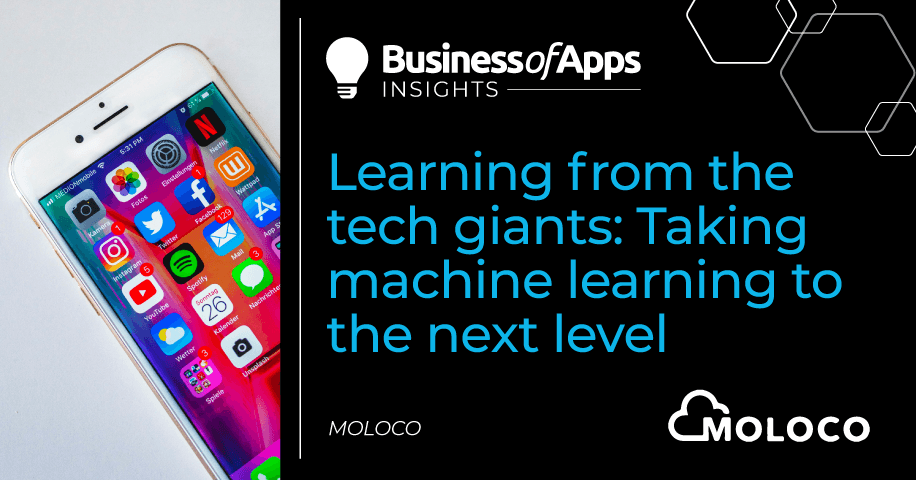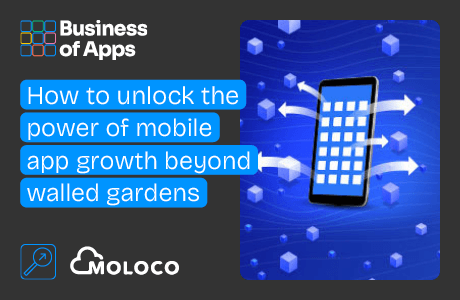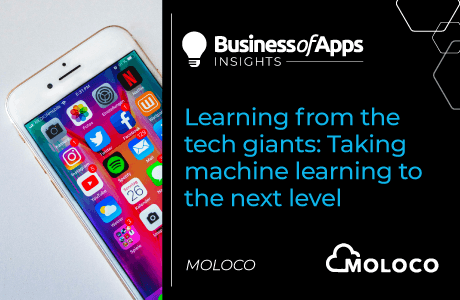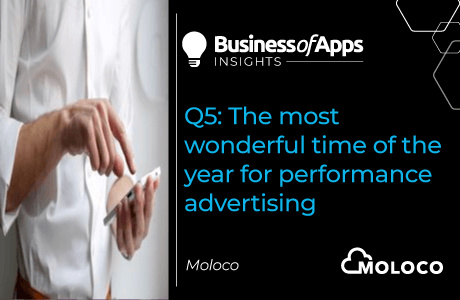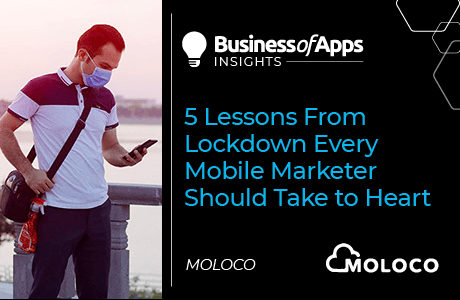In an era dominated by data and algorithms, it’s no secret that the likes of Facebook, Google, and Amazon have mastered the art of leveraging sophisticated machine learning (ML) to optimise advertising campaigns, targeting and ultimately conversions. They have solidified their positions as the go-to platforms for advertisers seeking to harness the power of machine-learning-data-driven marketing.
Outside the advertising walled gardens that the likes of Facebook and Google operate in, the Open Web is an untapped pool for growth to engage new users and increase revenue. Meta and Google’s owned inventory – where 34% of app time is spent – has great value and brings significant returns. But they give a finite picture of the consumer and limit the opportunities to reach them. This means missing out on 66% of an audience’s behaviour that must underpin any successful advertising strategy. Competition between brands is ever-growing for eyeballs in closed ecosystems. So those that venture out of the walls and into the open fields will gain a significantly greater volume of consumers to tap into and less competition.
The Open Web provides diverse data sources and the exploration of it breaks campaigns free from limitations, unleashing new avenues for engagement. By connecting with different audiences and in new environments, brands can build awareness and engagement. This approach contributes to a more balanced digital ecosystem, which benefits the entire advertising and publishing ecosystem. With the right implementation, machine learning can be applied to the Open Web, unlocking the potential to level the playing field and allow the best products to rise to the top.
Operational ML to reshape mobile app marketing
It would be difficult to miss the explosion of AI across industries, and mobile app marketing is no different. From generative AI to operational machine learning, it’s redefining the mobile app marketing landscape.
With the astounding potential to add trillions of dollars to the global economy, the power of AI must not be ignored, and it seems we’re only at the beginning of the game-changing transformations of this technology.
Google is the most dominant of all the online search engines, as research reveals it held a majority 58% share in the search advertising market in 2022. Digital advertising spending globally is valued at $626.86bn (£490.10 bn) in 2023 and is expected to reach $835.82bn (£653.48bn) by 2026. So, how can some of this success be redistributed?
Embodying the tech giants of the world
What sets tech giants such as Google, Meta, and Amazon apart from the others is that they excel at driving the results they strive for. ROAS and driving real performance made them grow into the behemoths they are today. However, the ability to implement the sort of technology that can deliver these results is not limited only to these tech powerhouses.
It is paramount that we create more access to this advanced form of ML technology. We should equip every performance marketer with the solutions and tools to deliver advanced advertising campaigns, leveraging the technology to its fullest.
That starts with the understanding that not all machine learning is created equal. Operational machine learning refers to models that use real-time data to self-improve and act autonomously in decision-making at speed and scale. This differs from typical machine learning, a batch process that predicts based on historical data and often relies on pre-programmed linear models needing manual inputs.
CTV Growth Guide: A must-read for performance marketers
Whether you’re looking to boost brand awareness or drive user acquisition, this guide has you covered. Learn how to leverage CTV for both brand awareness and performance-driven campaigns and get actionable insights to optimize your strategies.
Download nowTypical machine learning is like studying from textbooks and past exams, following a set plan with delayed feedback. It’s akin to a chef relying on recipes and adjusting for the next dish based on past experiences. In contrast, operational learning is comparable to a chef adapting in real-time while cooking, using immediate feedback to enhance skills on the fly. Similarly, operational machine learning models use real-time data for autonomous decision-making, continuously improving without waiting for a batch of historical information.
These capabilities are not exclusive to the Amazons and Googles of the world. In fact, the entire Open Web introduces a unique advantage for all mobile app marketers. With the opportunity to tap into first-party data, marketers can use existing user insights to inform campaigns and engage new users in a fraction of a second. Whether that’s for those operating within a marketplace or across gaming, dating or financial apps, embracing the Open Web enables marketers to gain clarity, enhanced insights, and access to a broader user base. Essentially, it allows those in the mobile app advertising space to break free from the limitations of walled gardens.
Empowering businesses on a global scale
With the right ML tools, businesses can be empowered to scale globally, achieve profitability and remain independent.
When a Machine Learning Engine is applied to campaigns on the Open Web it automates and scales performance by sourcing incremental conversations outside of the walled gardens. In short, this means using the Open Web as the ad inventory.
As we dive deeper into this technology, we are on the cusp of a new era for digital advertising, with the potential for exponential growth. Although a complex and challenging area of technology, those who channel its potential will be set to unlock true value. The possibility it offers for monetisation is significant, and the winners will be the ones who can successfully implement it and keep up with the changing landscape.
For marketers not already utilising ML technology, a first test is essential to understand the potential of various solutions, rigorously testing and then examining the outcomes available to them. A test campaign can help businesses realise the benefits and ensure they are selecting the most appropriate ML tools and approaches to drive the most impactful results.
While the tech giants currently dominate the conversation, they have paved the way for other businesses to optimise their marketing efforts, drive engagement and make informed decisions based on granular data analysis. ML has the potential to change the game for businesses worldwide and it will continue to redefine the mobile advertising industry for years to come.



